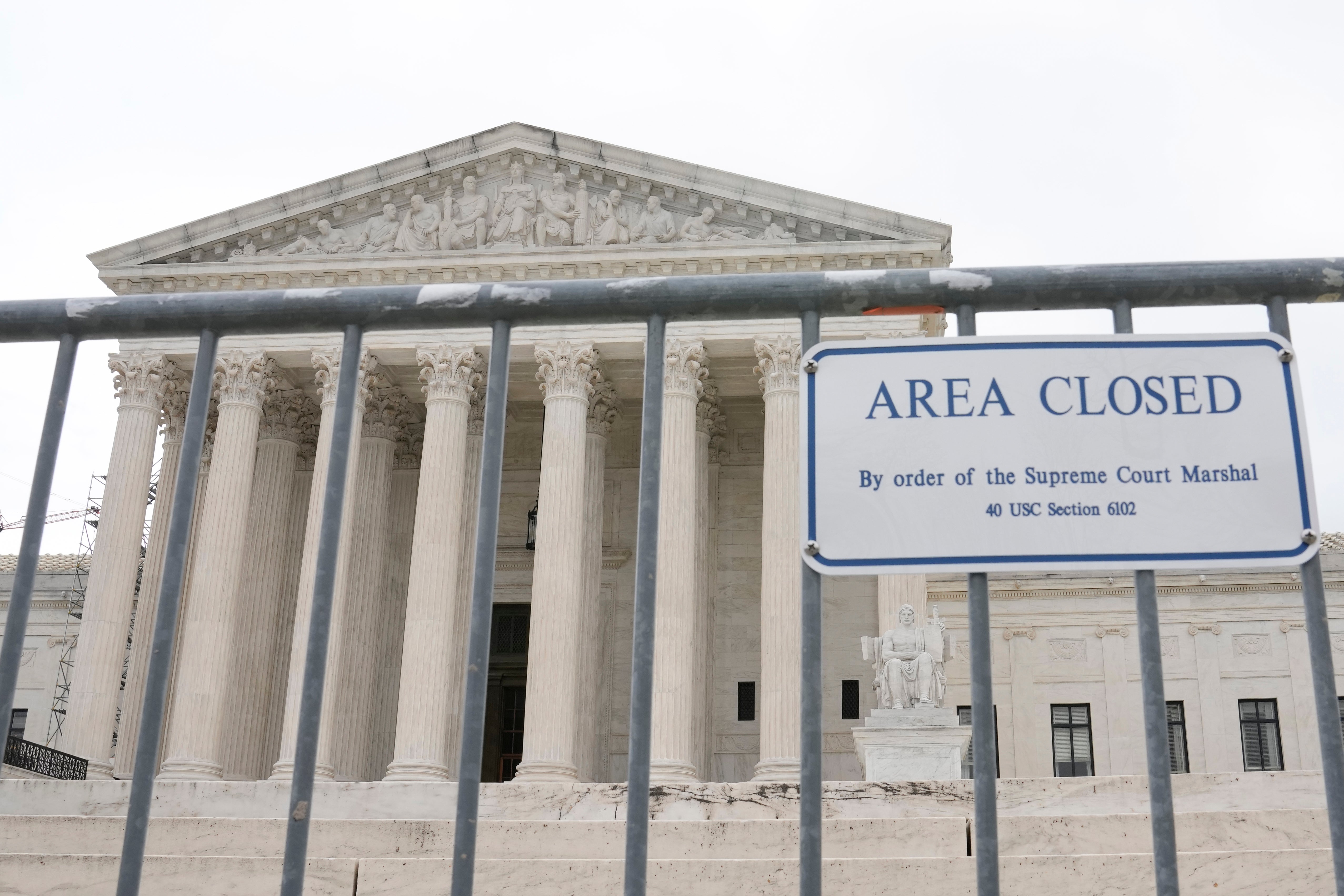Supreme Court skeptical of man who offered adult adoptions
The Supreme Court seems inclined to rule against a man convicted of violating immigration law for offering adult adoptions he falsely claimed would lead to citizenship

Your support helps us to tell the story
From reproductive rights to climate change to Big Tech, The Independent is on the ground when the story is developing. Whether it's investigating the financials of Elon Musk's pro-Trump PAC or producing our latest documentary, 'The A Word', which shines a light on the American women fighting for reproductive rights, we know how important it is to parse out the facts from the messaging.
At such a critical moment in US history, we need reporters on the ground. Your donation allows us to keep sending journalists to speak to both sides of the story.
The Independent is trusted by Americans across the entire political spectrum. And unlike many other quality news outlets, we choose not to lock Americans out of our reporting and analysis with paywalls. We believe quality journalism should be available to everyone, paid for by those who can afford it.
Your support makes all the difference.The Supreme Court seemed inclined Monday to rule against a man convicted of violating immigration law for offering adult adoptions he falsely claimed would lead to citizenship.
Attorneys for Helaman Hansen told the justices during approximately 90 minutes of arguments that the law he was convicted of violating was too broad. But the court's conservative majority in particular seemed willing to side with the government and conclude that it is not.
Justice Neil Gorsuch noted that the law “has been on the books for 70 years” without some of the issues Hansen's lawyers worried about. He also expressed no sympathy for Hansen himself, who he said was “taking advantage of very vulnerable people.”
“He had every intent in the world to keep these people here to take their money with no prospect they'd ever” actually get citizenship, Gorsuch said.
The case involves a section of federal immigration law that says a person such as Hansen who “encourages or induces” a non-citizen to come to or remain in the United States illegally can be punished by up to five years in prison. That’s increased to up to 10 years if the person doing the encouraging is doing so for their own financial gain.
The federal government says that from 2012 to 2016 Hansen — who lived in Elk Grove, California, near Sacramento — deceived hundreds of non-citizens into believing that he could guarantee them a path to citizenship through adult adoption.
Based on Hansen's promises, officials say, people either came to or stayed in the United States in violation of the law, even though Hansen knew that the adult adoptions he was arranging would not lead to citizenship. The government says at least 471 people paid him between $550 and $10,000 and that in total he collected more than $1.8 million.
Hansen was ultimately convicted of encouragement charges as well as fraud charges. He was sentenced to 10 years in prison for the encouragement charges and another 20 years on the fraud charges. But a federal appeals court ruled that the law on encouragement is overbroad and violates the free speech clause of the First Amendment and overturned just those convictions.
The court's three liberal justices seemed more concerned about the reach of the law. Justice Elena Kagan asked “what happens to all the cases” where a lawyer, doctor, neighbor, friend or teacher “says to a non-citizen: ‘I really think you should stay.’” Kagan wanted to know whether those people could or would be prosecuted under the law.
But Brian Fletcher, arguing for the Biden administration, pointed to the history of the government's use of the law over decades and said those aren't the kinds of cases the government pursues. Kagan seemed to credit that explanation later in the argument.
A ruling in the case, United States v. Helaman Hansen, 22-179, is expected by the end of June.